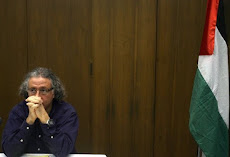Basim sent me this: "As other Twitter users noted, the
number one "most connected" communicator came as no surprise: Sultan Al
Qassemi, an Emirati commentator and writer, has become an informal
ambassador for the region. He was followed by Dima Khatib, a Qatari-based
journalist, in the number two spot; and Wael Ghonim, a former Google executive
who rose to prominence during Egypt's uprising, in number three. Most of people
on the list were commentators, activists and journalists, although prominent
politicians also figured large, with Egypt's Mohamed ElBaradei, the former
director general of the IAEA, ranking fourth.
In GCC states, and in the UAE in particular, Twitter has helped to
narrow the communication gap between the leadership and people of the
region. Both Sheikh Mohammed bin Rashid, Vice President of UAE and
Ruler of Dubai, and Sheikh Abdullah bin Zayed, the UAE Foreign Minister, are
included on the list.
Indeed it has:
The
number of activists detained in the United Arab Emirates since the month Ramadan
began on July 20, 2012, reached 57 by August 30, 2012. The most recent string of
arrests by the government included a crackdown on six activists, including
blogger Abdulaziz Hareb Al-Muhairi.
Al-Muhairi was taken into custody after police entered his house
without a warrant. In addition to Al-Muhairi,
UAE authorities arrested Ahmad Awad Al
Sharqi, a school administrator, Ali Abdullah Al-Khaja,
a businessman, Jamal Awad Al-Sharqi, Abdullah
Al-Jabri, and Rashed Khalfan
Obaid Ben Sabt.
An official from the Abu Dhabi
Attorney-General's office issued a stern warning against taking the issue
lightly. "Some do not realise the serious consequences of their conduct on
social networks and chatrooms. Libel and vilification is punishable by law
whether committed in the real world or in the virtual one," he
said."








